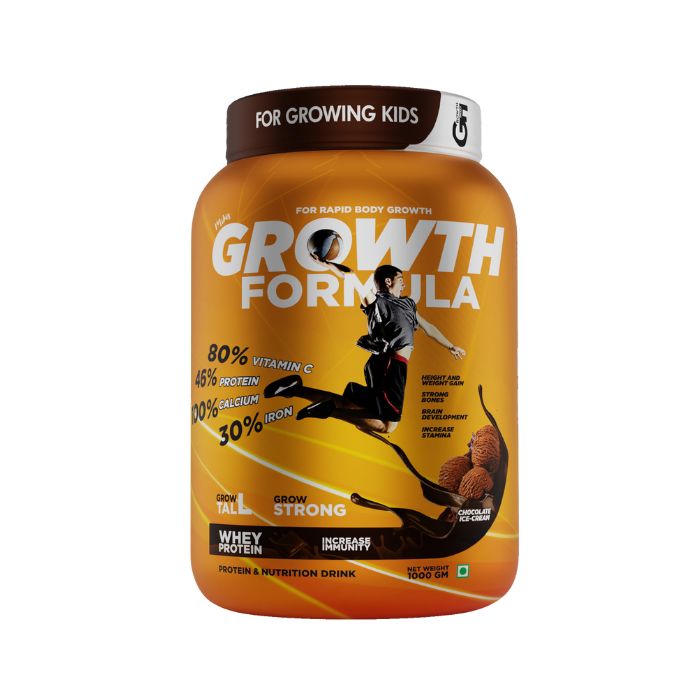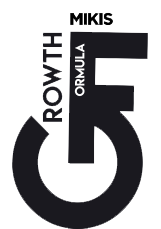
Understanding Protein Powder Age Limit and Child Growth Needs
Introduction
When it comes to child nutrition, few topics raise more questions than protein supplements. Parents often wonder, should their kids have protein powder? What’s the safe protein powder age limit? With so many brands and confusing advice out there, it’s easy to feel overwhelmed. But here’s the truth: children do need protein, but how much, when, and in what form really matters.
This blog breaks it all down for you in simple terms. We’ll explore what protein does for a growing body, the safe usage of protein powders, and how it supports child development. Whether you're curious about protein for child growth or concerned about giving supplements too early, we've got it covered.
So, before you scoop that powder into a glass of milk, take a few minutes to understand what’s right for your child. Let’s explore the world of protein the smart way, without overcomplicating it.
Why Protein Matters for Kids
Building blocks for growth and strength
Protein is an essential nutrient that helps build and repair tissues in the body. For kids, who are constantly growing, it plays an even more important role. It supports muscle development, strengthens bones, and even helps in the production of enzymes and hormones.
Children between the ages of 4 to 14 need different amounts of protein depending on their weight and activity levels. Instead of overdosing on supplements, it’s better to understand the natural role of protein in foods like milk, eggs, and pulses. However, for picky eaters or underweight children, supplements may be helpful, but only within the right protein powder age limit.
What is the Right Protein Powder Age Limit?
Timing matters: Don’t start too early
So, when is it okay to introduce protein powder? Generally, children under 5 years old should get their nutrients from natural food sources. Most health experts suggest that the ideal protein powder age limit is after age 5, but always with pediatric advice.
Children older than 5 can use protein powders if they are involved in high activity levels or have dietary deficiencies. Even then, the dosage must be moderate. Giving supplements too early can stress the kidneys and interfere with natural eating habits. Always check the label and go for powders that are age-appropriate and free of additives.
Natural vs. Supplemented Protein
Whole food first, powders second
Natural protein sources like eggs, dairy, lentils, and lean meats should always be the first choice. These foods not only provide protein but also offer other nutrients like iron, calcium, and fiber.
Supplements should not replace meals. They are best used to supplement a poor diet, not act as the foundation of one. If your child has trouble meeting their needs, then protein for child growth from powders can be considered. But it should complement a meal, not replace it.
Benefits of Protein for Child Growth
Helping kids grow tall, strong, and sharp
Here’s how protein for child growth helps:
-
Supports muscle and bone development.
-
Enhances immune system function.
-
Improves concentration and mental alertness.
-
Helps with tissue repair and recovery.
-
Aids the formation of hormones and enzymes.
Regular intake of age-appropriate protein helps children stay active, alert, and healthy. Just remember, more is not always better, balance is key.
Choosing the Right Protein Powder
Look beyond the flashy packaging
Not all protein powders are safe for children. Choose products that are specifically labeled for kids. Avoid powders with high sugar content, artificial sweeteners, or caffeine.
Some key things to check:
-
Age-appropriateness (based on protein powder age limit).
-
Nutrient profile (vitamins + minerals).
-
Type of protein used (whey, plant-based, etc.).
-
Doctor recommendations.
Avoid blindly copying adult supplements for kids. Their needs are different and must be treated carefully.
Risks of Excess Protein in Kids
Too much of a good thing isn’t good
It’s easy to think that more protein means faster growth, but this isn’t true. Excess protein, especially from powders, can lead to kidney strain, dehydration, or loss of appetite.
In children, excessive supplementation beyond the protein powder age limit may interfere with nutrient balance. Kids may start skipping meals or rely only on milkshakes for energy, leading to poor eating habits. Balance and moderation are essential.
Signs Your Child Needs More Protein
Watch out for these body cues
Sometimes, the body shows signs when it lacks enough protein. Here are a few things to watch for:
-
Slow physical growth.
-
Weak immunity or frequent illness.
-
Poor concentration.
-
Brittle nails and hair loss.
-
Fatigue or low energy.
If you notice these, it might be time to explore protein for child growth, under expert guidance.
Conclusion
Protein is a vital building block in every child’s development journey. But as with all nutrients, it needs to be given thoughtfully and in balance. Understanding the protein powder age limit can help you make better choices and avoid over-supplementation. While natural foods should always come first, high-quality supplements can play a supportive role in some situations, especially when guided by a health expert.
The key takeaway? Don’t just follow trends, follow facts. Read labels, consult doctors, and focus on long-term nourishment. When used right, protein for child growth can be a smart nutritional strategy, not a shortcut.
Want to explore protein powders made specifically for children? Visit GrowthFormula.in and discover age-appropriate solutions designed by experts. Support your child’s healthy development, with nutrition you can trust.
FAQs
-
What is the ideal protein powder age limit for kids?
The ideal protein powder age limit is after age 5, but only with pediatric consultation.
-
Is protein for child growth better from food or powder?
Protein for child growth is best from natural foods, with powders used only when needed.
-
Can toddlers consume protein powder before the age limit?
No, toddlers should not consume protein powder before the advised protein powder age limit.
-
Why is understanding the protein powder age limit important?
Knowing the protein powder age limit helps prevent kidney stress and promotes healthy development.
-
How does protein for child growth work in the body?
Protein for child growth helps in muscle development, tissue repair, and overall growth.
-
Are there any risks if you ignore the protein powder age limit?
Yes, ignoring the protein powder age limit can lead to nutritional imbalance and health issues.
-
What foods can support protein for child growth naturally?
Eggs, dairy, pulses, and meat are excellent for supporting protein for child growth.
-
Do all protein powders respect the protein powder age limit?
Not all products mention the protein powder age limit, so read labels carefully.
-
How often should protein for child growth be consumed?
Protein for child growth should be consumed in moderation and ideally spread throughout the day.
-
Is protein powder age limit the same for boys and girls?
The protein powder age limit is generally the same, but activity levels may affect dosage.
-
Can protein for child growth replace meals?
No, protein for child growth supplements should not replace regular meals.
- Is plant-based protein safe within the protein powder age limit?
Yes, plant-based protein is safe if it meets the protein powder age limit guidelines.
